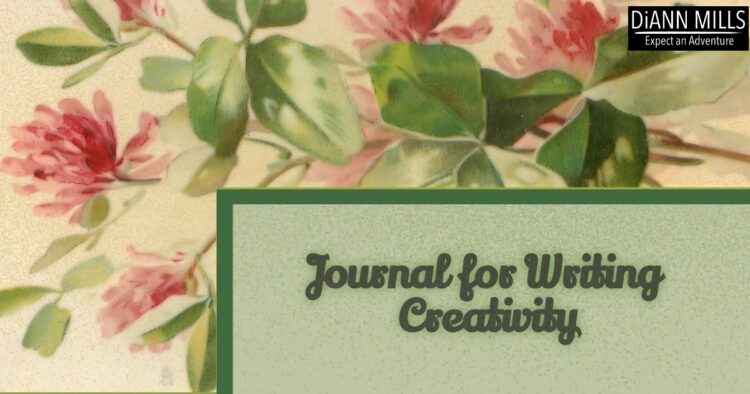By DiAnn Mills @DiAnnMills
Some people have journaled since they received their first notebook or diary. They entered information daily, weekly, or whenever the whim urged them to complete an empty page. Some of them used a lock to prevent others from reading their inner thoughts, while others hid their recollections where no one could find them. Many people today have continued to keep an accounting of day-to-day happenings. They reserve time to record events, prayers, challenges, victories, thoughts, emotions, and even art. The practice allows them to process what they’ve experienced and learn to cherish blessings and endure harsh blows.
Journaling is education for the soul. The person can envision how life could have been or can be better by using logic paired with emotions to work through weaknesses and capitalize on strengths. How grand to recall what we’ve forgotten. The process encourages mental and spiritual growth.
Writers have countless reasons to record their ups and downs. Journaling develops creativity with the understanding nothing is wasted in the writer’s life. Vulnerability is a powerful tool in the writer’s arsenal.
I value journaling as an assistant in creating characters, plots, settings, emotions, dialogue, and symbols. Below I’ll share how recording situations and circumstances has the potential to benefit writing and enlighten understanding of a story, including those that are not our own.
Brainstorming
Writers who exchange ideas or solve problems by sharing what they’ve learned from walking life’s roads add a level of expertise to their own stories and/or assisting other writers. Deepening character motivation and planning unpredictable plots make for a masterful book.
Characters learn from what the writer didn’t see or accept in their own life.
Learning early on to recognize errors in decisions makes us wiser and enables helping others. Truth and honesty deliver a powerful punch to a story. This technique of applying journaling to a story increases awareness of life-changing events.
Characters, unlike the writer, who refuse to process life’s twists and turns.
This concept works for protagonists and antagonists. Through a series of what-ifs and worst-possible-scenarios, writers look back at their own lives and envision the outcome of wearing blinders and choosing a stubborn attitude. The result is a lack of growth and failure to move ahead.
Developing a story from a heartache can be healing.
Most stories involve a character struggling through the anguish of lies, betrayal, deceit, manipulation, and/or tragedies. Writers who have walked a sorrowful road not only share believable emotions in their stories but also finds a source of healing in the transparency. Don’t be afraid to rip off the Band-Aid on your heart and share what disturbed or devastated you.
Story ideas emerge from circumstances that may or may not be the same as the writer.
Different perspectives often show a slice of life not encountered previously. People evaluate life according to their personalities. Introverts often quietly endure life’s disappointments and are private in their triumphs. Extroverts reach out to their lifeline of friends in victories and defeats. Both processes demonstrate varying viewpoints according to their personality. Neither is right or wrong. A writer who crafts a panorama of characters enriches the reader’s experience.
Journaling enhances our stories because we often forget the fresh emotions of a life happening. Be bold, fresh, raw, honest, and straightforward. If your interpretation is later proven wrong, record that too with new emotions. Try different methods of journaling to develop what works best for you.
How are you journaling to enhance your writing creativity?


